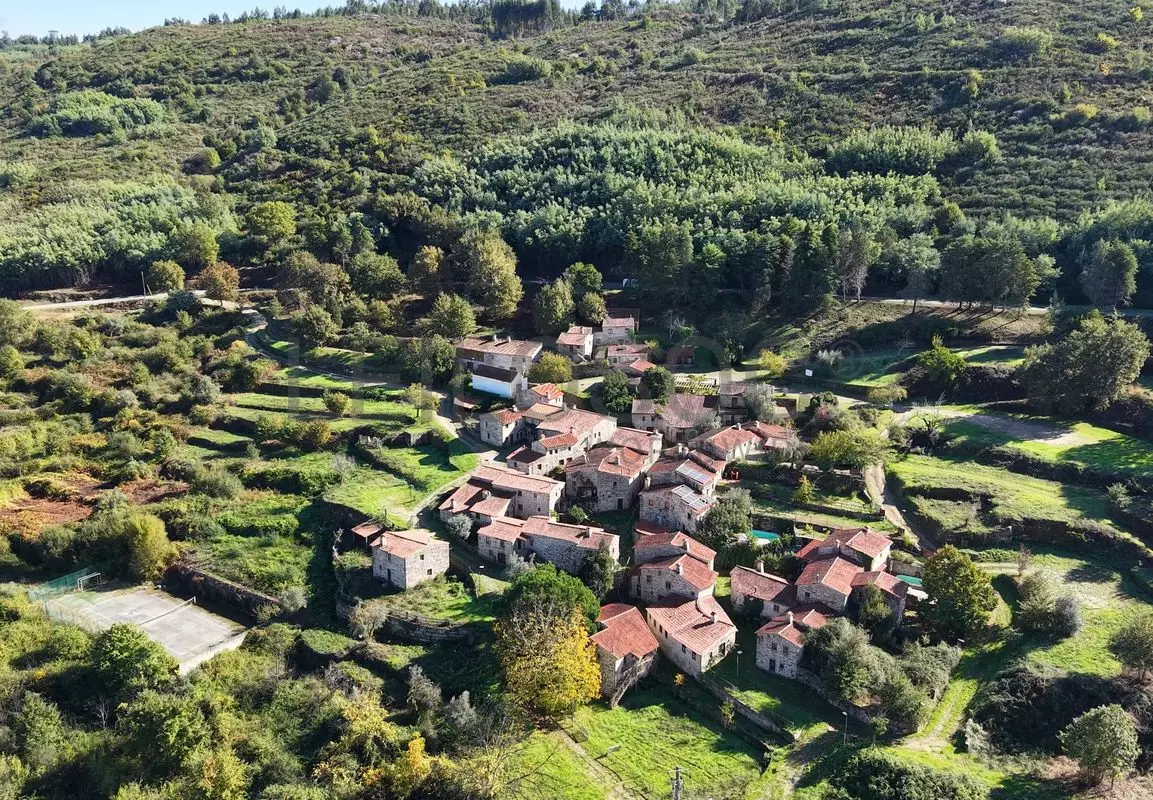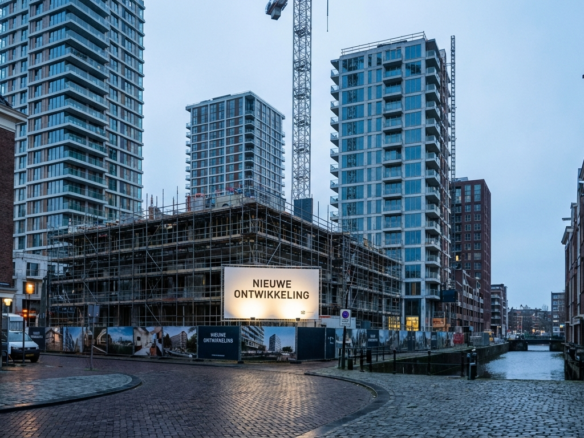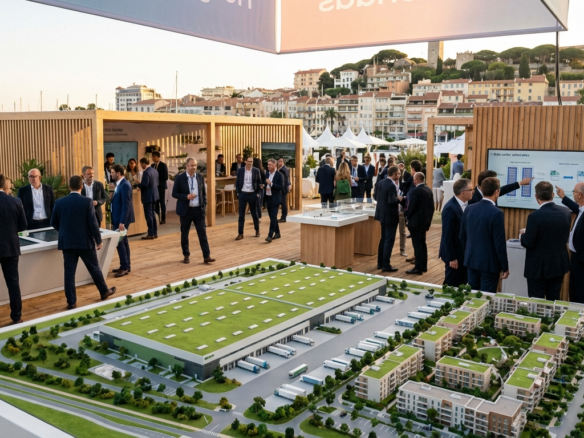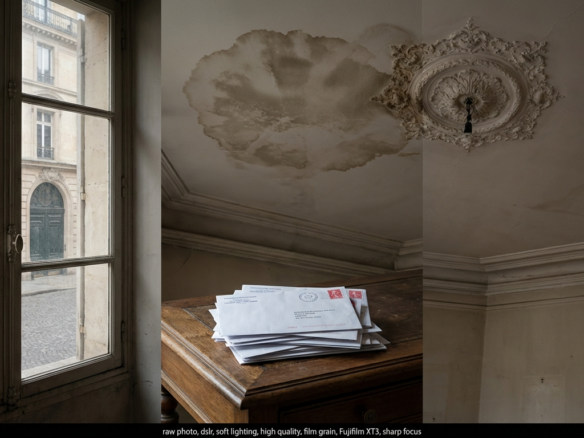The historic village of Póvoa Dão, located in Silgueiros, a few kilometers from Viseu, is once again up for sale, this time in an online auction, with a starting price of €1.7 million and a minimum value of €1.445 million. This isn’t just a house or even a collection of buildings; it’s a complete settlement with its own history, character, and potential for transformation. The sale represents a rare chance for investors, entrepreneurs, or visionaries to own a piece of Portugal’s rural heritage and potentially breathe new life into a community that time has nearly forgotten. As urban populations continue to grow and remote work becomes increasingly normalised, such opportunities are capturing the imagination of buyers worldwide who dream of creating something truly unique.
Get 50% OFF!
Subscribe to our newsletter and enjoy a 50% discount on all listing packages, no strings attached!

Entire Portuguese Village Hits Market
The historic village of Póvoa Dão in question represents a fascinating snapshot of rural Portuguese life frozen in time. Located in the country’s interior regions, this settlement includes multiple residential buildings, agricultural structures, and the infrastructure that once supported a thriving community. The asking price of €1.7 million might seem substantial at first glance, but when broken down across the numerous properties and land parcels included in the sale, it represents a potentially attractive investment for the right buyer. The village’s availability speaks to broader demographic trends affecting rural Portugal, where younger generations have migrated to cities in search of employment opportunities, leaving behind aging populations and eventually abandoned settlements.
What makes this particular sale noteworthy is the completeness of the offering. Unlike purchasing individual ruins or derelict properties scattered across different locations, buyers receive an entire ecosystem in one transaction. This comprehensive approach eliminates many of the complications typically associated with rural property development in Portugal, such as dealing with multiple sellers, navigating complex ownership histories, or assembling adjacent parcels. The seller has essentially packaged everything needed to reimagine the space, whether that vision involves a boutique hotel, an eco-tourism destination, an artists’ retreat, or even a private family compound. The possibilities are limited only by imagination, budget, and Portugal’s planning regulations.
Historic Settlement Offers Unique Investment
Portuguese villages like this one carry centuries of history within their stone walls and cobbled pathways. These settlements were typically established in locations that offered strategic advantages such as water access, defensive positions, or proximity to agricultural land. Over generations, families built their lives around shared resources, communal spaces, and the rhythms of rural life. The architecture reflects traditional building methods using local materials, with thick stone walls designed to keep interiors cool during scorching summers and warm during damp winters. Many such villages feature elements like communal bread ovens, washing areas, and threshing floors that tell stories of how communities once functioned collectively.
The investment potential extends beyond mere property speculation. Portugal has been experiencing a tourism boom in recent years, with visitors increasingly seeking authentic experiences away from crowded coastal resorts. Rural tourism, or “turismo rural,” has become a significant growth sector as travelers look for peaceful retreats, cultural immersion, and connection with nature. A restored village could tap into this market by offering accommodations that blend historical character with modern comfort. Additionally, Portugal’s favorable tax policies for certain types of investment, combined with EU funding opportunities for rural development projects, could make the financial equation more attractive for buyers willing to commit to thoughtful restoration and community development.
What’s Included in the 1.7 Million Euro Price
The €1.7 million price tag encompasses a substantial portfolio of assets that would be difficult to assemble independently. According to typical village sales of this nature, buyers can expect to receive:
Property Components:
- Multiple residential dwellings in various states of repair
- Agricultural outbuildings and storage structures
- Communal spaces and village squares
- Access roads and pathways throughout the settlement
- Surrounding agricultural land and possibly forested areas
- Water rights and existing infrastructure connections
- Any remaining historical features like fountains or monuments
Land and Natural Resources:
- Cultivable fields suitable for agriculture or vineyards
- Potential for olive groves or other traditional crops
- Natural water sources such as springs or streams
- Wooded areas that could provide timber or recreational space
- Grazing land if livestock operations are contemplated
The exact inventory varies depending on the specific village, but the comprehensive nature of these sales typically means buyers acquire everything within defined boundaries. This includes not just buildings but the land they sit on and the spaces between them. Some structures may be habitable with minimal work, while others might require complete reconstruction. The variation in condition actually provides flexibility, allowing phased development that spreads costs over time. Buyers should conduct thorough due diligence, including structural surveys, title searches, and assessments of utility connections, before committing to purchase.
Remote Location Presents Challenges and Charm
The village’s remote location cuts both ways, offering tranquility and authenticity while presenting practical challenges. Portugal’s interior regions are characterized by dramatic landscapes, sparse populations, and a slower pace of life that urban dwellers often romanticize. The distance from major cities means less noise pollution, light pollution, and the constant bustle that defines modern life. Stars shine brighter, silence feels deeper, and the connection to natural cycles becomes more immediate. For those seeking escape or hoping to create a destination that offers genuine disconnection, this remoteness is a feature, not a bug.
However, isolation brings complications that must be carefully considered. Access to services like healthcare, schools, and shopping requires travel to larger towns, potentially hours away. Internet connectivity, essential for most modern businesses and remote workers, may be limited or require significant investment to establish. Utilities like electricity and water might need upgrades to support expanded use. Finding skilled workers for restoration projects can be challenging in depopulated areas, potentially increasing costs and timelines. Winter weather can make access difficult, and emergency services may have longer response times. Any business plan must account for these realities and either work within them or budget for solutions.
Regulatory and Practical Considerations
Purchasing and developing property in Portugal involves navigating specific legal and regulatory frameworks. Foreign buyers, including those from outside the EU, can generally purchase Portuguese property, but the process requires:
- Obtaining a Portuguese tax identification number (NIF)
- Opening a Portuguese bank account
- Engaging qualified legal representation familiar with property law
- Conducting comprehensive title searches to verify ownership
- Understanding local planning regulations and heritage protections
- Securing necessary permits before beginning restoration work
Heritage protections are particularly relevant for historic villages. Portugal takes preservation of traditional architecture seriously, and modifications to historic structures often require approval from cultural authorities. This can limit design choices but also ensures that development respects the character that makes these villages special. Working with architects experienced in heritage restoration is essential for projects of this scale.
Potential Development Scenarios
Creative buyers have transformed similar properties into various successful ventures:
Tourism and Hospitality:
- Boutique hotels with rooms in separate village houses
- Yoga and wellness retreats capitalizing on peaceful settings
- Wedding and event venues for destination celebrations
- Agritourism experiences combining accommodation with farm activities
Residential Concepts:
- Co-housing communities for like-minded individuals or families
- Artist colonies providing studio space and residences
- Retirement communities focused on active, rural lifestyles
- Private family estates with space for multiple generations
Mixed-Use Developments:
- Combining permanent residences with vacation rentals
- Working farms that also offer educational tourism
- Craft workshops that produce and sell traditional goods
- Remote work hubs attracting digital nomads
Each scenario requires different levels of investment, generates different revenue streams, and faces unique challenges. Success depends on matching the development concept to market demand, available capital, and the buyer’s skills and interests.
Frequently Asked Questions
Can foreigners buy an entire village in Portugal?
Yes, Portugal allows foreign nationals, including non-EU citizens, to purchase property without significant restrictions. The process requires obtaining a Portuguese tax number and working with legal professionals, but there are no prohibitions on foreigners buying villages or large rural properties.
What are the ongoing costs of owning a Portuguese village?
Ongoing costs include property taxes (IMI), which are relatively low for rural properties, utility bills, insurance, maintenance, and security if the property remains unoccupied. Budget for regular upkeep even for unused buildings to prevent deterioration. Annual costs could range from several thousand to tens of thousands of euros depending on the property’s size and condition.
How long does restoration of a village typically take?
Complete restoration of an entire village is a multi-year undertaking. A phased approach might see initial buildings completed within 1-2 years, but full development could easily span 5-10 years or more. Timeline depends on budget, workforce availability, permit processing, and project scope.
Are there grants available for rural property restoration in Portugal?
Portugal and the EU offer various funding programs for rural development, heritage preservation, and tourism infrastructure. Eligibility depends on project specifics, intended use, and applicant qualifications. Programs like the Portugal 2030 initiative and regional development funds may provide support for qualifying projects.
What are the tax implications of operating a business in a restored village?
Tax treatment depends on business structure and activities. Tourism operations face standard corporate tax rates, though incentives exist for certain rural investments. The Non-Habitual Resident (NHR) program offered tax benefits for new Portuguese residents, though recent changes have modified this scheme. Consult with Portuguese tax advisors for current regulations.
Is it realistic for one person or family to undertake such a project?
While possible, successfully developing an entire village typically requires either substantial personal wealth, investor partnerships, or phased development that generates revenue to fund subsequent stages. Most successful projects involve teams rather than individuals, combining expertise in areas like construction, hospitality, marketing, and finance.
The sale of an entire Portuguese village for €1.7 million represents far more than a simple real estate transaction. It’s an opportunity to preserve cultural heritage, create economic activity in depopulated regions, and realize ambitious visions that would be impossible in conventional property markets. Whether the buyer envisions a thriving tourism destination, a private retreat, or an experimental community, the raw materials are there waiting for transformation. However, romantic notions must be tempered with realistic assessments of the challenges involved. Successful projects require substantial capital, patience, expertise, and commitment to seeing complex, long-term developments through to completion. For those with the resources and determination, purchasing a village offers the rare chance to leave a lasting legacy while contributing to the revitalization of Portugal’s beautiful but often overlooked interior regions. As rural depopulation continues affecting communities across Europe, creative reuse of these abandoned settlements may point toward sustainable models for preserving the past while building the future.





Join The Discussion